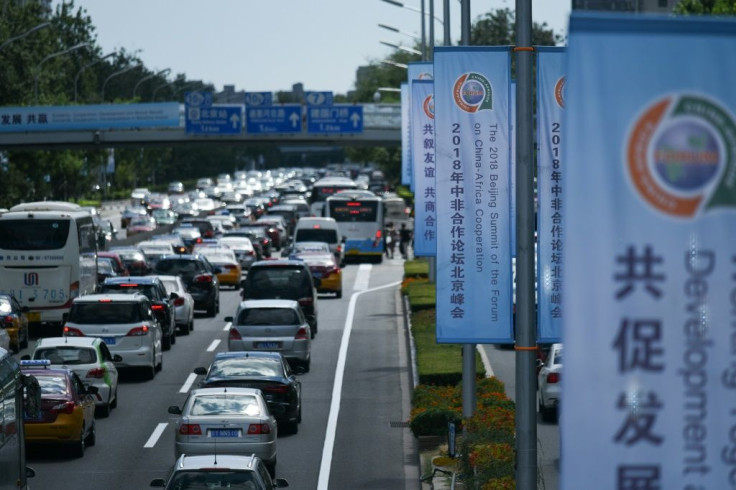Africa Is Beginning To See The Ugly Side Of China's Investment Model
For years, African countries saw the pretty side of China's growing investment presence in the continent — an effort by Beijing to put the continent on the globalization map by building what it badly missed for years: a sound infrastructure.
Now, African countries are beginning to see the ugly side of China's growing presence: substandard infrastructure projects built at inflated prices by Chinese state-owned enterprises and imported labor financed by Chinese state banks on their terms.
As a result, African countries have hardly seen the traditional "multiplier" effects associated with construction projects, while they have seen their private and public debt soaring.
According to London-based think tank Chatham House, Chinese lenders account for 12% of Africa's private and public external debt, which increased more than fivefold to $696 billion from 2000 to 2020.
"Chinese investment in resources and infrastructure projects has been one of the most noticeable economic trends in Africa over the past decade," Cecily Davis, head of the Africa Group at international law firm Fieldfisher, told International Business Times. "They are funding the construction of major roads, mines and renewable energy projects across the continent, but this trend has not been worry-free."
According to Davis, most of these projects were financed by Chinese Development Finance Institutions (DFIs) — specialized development banks that are majority-owned by the national government and have been criticized for their lack of transparency and involvement in controversial projects.
Irina Tsukerman, president of Scarab Rising, Inc., provided further insights as to why China's presence in Africa has been seen as problematic by the local populations for many years. "One example of that was the China bank's imposition of aggressive terms over the Uganda airport debt," she told IBT. "It has also ruined its image in Kenya after most of its infrastructure projects failed to benefit the locals, with China largely importing its workforce, its traditional model in Africa."
Tsukerman believes that citizens in various African countries where China has an extensive presence see Beijing not as a benefactor but as a colonizer seeking to entrap their countries into debt while outright stealing the natural resources present there.
Simply put, Chinese construction companies and banks are in Africa to exploit the people and take their resources, as European colonists did during mercantile times. Perhaps worse, they are trying to turn Africa into another Chinese continent.
African countries are hardly the only ones seeing the ugly side of China's investment model. So are countries like Pakistan and Sri Lanka, which have seen their debt soaring following the building up of high-profile projects by Chinese corporations.
Pakistan is already counting on the IMF to keep its economy afloat, while Sri Lanka has already ceded control of its critical infrastructure to China by swabbing Chinese debt for equity.
Some African countries may find themselves in a similar situation as their debt comes due when they strive to recover from the pandemic.
"The debt obligations they place on project host countries were less of a concern at the time of investment," Davis said. "But this is coming more into focus as lenders look to be paid back at a time when many African countries are still recovering from the impact of the COVID-19 pandemic on their national finances."

© Copyright IBTimes 2024. All rights reserved.






















